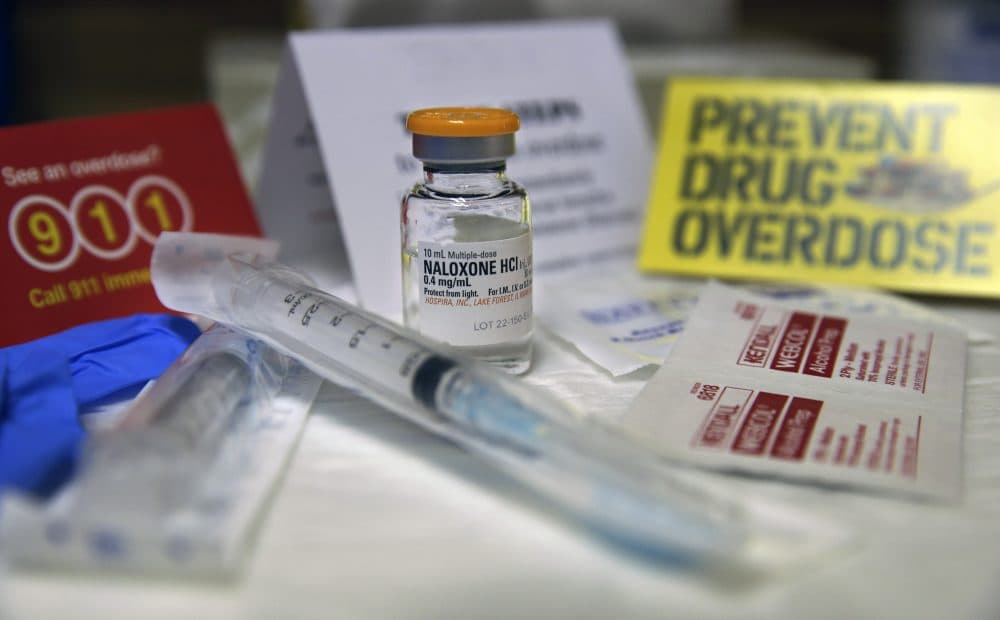Advertisement
Should Cambridge Put Anti-Overdose Drugs In Public Lockboxes?
Resume
If somebody were overdosing on opioids on the street in front of you, and there were a lockbox close by that contained Narcan, the medication that can revive people who have overdosed, would you use it?
That's the question researchers in Cambridge tried to answer when they put a dummy in Central Square, and asked people passing by to pretend that they had just found an unconscious person. The passersby were given a cellphone and connected to someone acting as an emergency dispatcher. That dispatcher directed the caller to a lockbox, and gave them directions on how to administer the Narcan inside.
Jeremy Warnick, director of communications for the Cambridge Police Department, said that when an opioid overdose happens, "Each minute, each second, is critical. So, if we can have someone deploy Narcan within that first minute, while our units are arriving on scene in maybe three minutes, that initial dosage could be the matter of keeping them alive in the interim while our public safety units are responding."
But some in Cambridge think a lockbox with Narcan in it might encourage opioid use in public places. Others worry that it could be dangerous to those who are trying to help.
Guest
Dr. Scott Goldberg, director of emergency medical services at Brigham & Women's Hospital in Boston.
This segment aired on June 2, 2017.